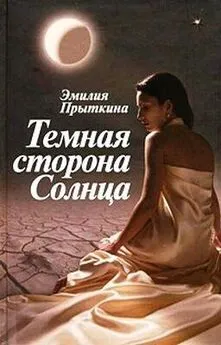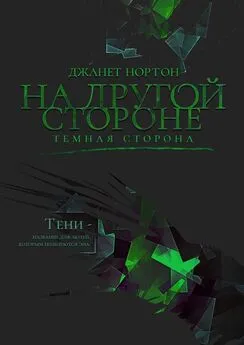Майкл Манн - Темная сторона демократии. Объяснение этнических чисток
- Название:Темная сторона демократии. Объяснение этнических чисток
- Автор:
- Жанр:
- Издательство:неизвестно
- Год:2016
- ISBN:нет данных
- Рейтинг:
- Избранное:Добавить в избранное
-
Отзывы:
-
Ваша оценка:
Майкл Манн - Темная сторона демократии. Объяснение этнических чисток краткое содержание
Темная сторона демократии. Объяснение этнических чисток - читать онлайн бесплатно ознакомительный отрывок
Интервал:
Закладка:
Derogy, J. 1986. Operation Nemesis. Paris: Fayard.
Des Forges, A. 1999. Leave None to Tell the Story. New York: Human Rights Watch.
Dhillon, K. 1998. “A Decade of Violence, 1983-1992”, in J. Grewal & I. Banga (eds.), Punjab in Prosperity and Violence. Chandigaigh: К. K. Publishers.
Dicks, H. 1972. licensed Mass Murder: A Socio-Psychological Study of Some SS Killers. London: Chatto Heinemann.
Djemal Pasha, 1922. Memories of a Turkish Statesman. New York: George Doran.
Djordjevic, D. 1971. “Fascism in Yugoslavia, 1918-1941”, in Sugar (ed.), Eastern European Nationalism in the Twentieth Century.
Documents cm Ottoman-Armenians, 2 vols. 1983. Ankara: Prime Ministry Directorate General of Press and Information.
Dolukhanov, P. 1994. Environment and Ethnicity in the Middle East. Aldershot: Avebury.
Dominguez Ortiz, A., & Vincent, B. 1994. “La tragedie se rcpete: le bannissement des morisques”, in Barkai (ed.), Chretiens, musuimans etiuifs.
Domovina Net. 1999. “From Thug to Hero”. Available at http://www.xs4all. nl/frankti/Warcrimes/caco.html.
Don,Y. 1989. “The Economic Effect of Anti-Semitic Discrimination: Hungarian Anti-Jewish Legislation, 1938-1944”, in Marrus (ed.), The Nad Holocaust.
Dorian, Е. 1982. The Quality of Witness: A Romanian Diary 1937-1944. Philadelphia: Jewish Publication Society of America.
Dower, J. 1986. War without Mercy: Race and Power in the Pacific War. New York: Pantheon.
Doyle, M. 1983. “Kant, Liberal Legacies and Foreign Affairs, Parts 1 and 2”. Philosophy and Public Affairs, vol. 12.
Dravis, М., & Pitsch, A. 1995-8. “Burundi Chronology” (with updates). Available at http://www.bsos.umd.edu/cidcm/mar/burundi.htm.
Drechsler, H. 1980. "Let Us Die Fighting”: The Struggle of the Herrero and the Nama Against German Imperialism. London: Zed.
Du Preez, P. 1994. Genocide: The Psychology of Mass Murder. London: Boyars/ Bowerdean.
Edwards, J. 1999. The Spanish Inquisition. Stroud, Gloucestershire: Tempus.
El Mallakh, D. 1979. The Slovak Autonomy Movement, 1935-1939: A Study in Unrelenting Nationalism. New York: Columbia University Press.
Elias, N. 1996. The Germans. New York: Columbia University Press.
Emerson, D. (ed.) 1999. Indonesia Beyond Suharto. Armonk, N.Y.: М. E. Sharpe.
Erez, Z. 1989. “The Jews of Budapest and the Plans of Admiral Horthy August – October 1944”, in Marrus (ed.), The Nazi Holocaust.
Esty, D., et al. 1998. “The State Failure Project: EarlyWarning Research for U.S. Foreign Policy Planning”, in J. Davis & T. Gurr (eds.), Crisis Early Warning Systems. Boulder, Colo.: Rowman & Littlefield.
Etcheson, C. 2000. “The Number” – Quantifying Crimes Against Humanity in Cambodia. Documentation Center of Cambodia. Available at www.mekong. net/cambodia/toll.htm.
Evans, A. 1999. “Kashmir: The Past Ten Years”. Asian Affairs, vol. 30.
Ezergailis, A. 1996. The Holocaust in Latvia, 1941-1944: The Missing Center. Washington, D.C.: United States Holocaust Memorial Museum.
Fargion, L. 1989. “The Anti-Jewish Policy of the Italian Social Republic (1943-1945)”, in Marrus (ed.). The Nazi Holocaust.
Farris, N. 1984. Maya Society Under Colonial Rule. Princeton, N.J.: Princeton University Press.
Fearon, J. 1995. “Rationalist Explanations for War”. International Organization, vol. 49.
Fearon, J., & Lai tin, D. 1996. “Explaining Interethnic Cooperation”. American Political Science Review, vol. 90.
Fearon, J., & Laitin, D. 2000. “Violence and the Social Construction of Ethnic Identity”. International Organization, vol. 54.
Fearon, J., & Laitin, D. 2003. “Ethnicity, Insurgency and Civil War”. American Political Science Review, vol. 97.
Fein, H. 1979. Accountingfor Genocide. New York: Free Press.
Feingold, H. 1983. “How Unique Is the Holocaust?” in A. Grobman &
D. Landes (eds.), Genocide: Critical Issues of the Holocaust. Los Angeles: Simon Wiesenthal Center.
Fejes, J. 1997. “Carpatho-Ruthenia in 1941”, in Braham & A. P 'ok (eds.), The Holocaust in Hungary.
Felak, J. 1994. 'At the Price of the Republic”. Hlinka’s Slovak People’s Party, 1929-1938. Pittsburgh: University of Pittsburgh Press.
Fieldhouse, D. 1965. The Colonial EmpiresJmm the Eighteenth Century. NewYork: Weidenfeld & Nicolson.
Finkelstein, N., & Bim, R. (eds.). 1998. A Nation on Trial: The Goldhagen Thesis and Historical Truth. New York: Owl Books.
Fischer, C. 1995. The Rise of the Nazis. Manchester: Manchester University Press.
Fitzpatrick, S. 1978. “Cultural Revolution as Class War”, in Fitzpatrick (ed.), Cultural Revolution in Russia, 1928-1931. Bloomington: Indiana University Press.
Fitzpatrick, S. 1994. Stalin’s Peasants. Oxford: Oxford University Press. [Русское издание: Фицпатрик Ш. Сталинские крестьяне. Социальная история Советской России в 30-е годы: деревня / Пер. с англ. М.: РОССПЭН, 2001.1
Frame, G. 1992. Babylonia 689-627 B.C.: A Political History. Istanbul: Nederlands Historisch-Archaeologisch Instituut.
Fredrickson, G. 1988. “Colonialism and Racism: The United States and South Africa in Comparative Perspective”, in his The Arrogance of Race. Middletown, Conn.: Wesleyan University Press.
Freeman, M. 1995. “Genocide, Civilization and Modernity”. British Journal of Sociology , vol. 46.
Friedgut, T. 1987. “Labor Violence and Regime Brutality in Tsarist Russia: The Ivzovka Cholera Riots of 1892”. Slavic Review, vol. 46.
Friedlander, H. 1995. The Origins of Nazi Genocide: From Euthanasia to the Final Solution. Chapel Hill: University of North Carolina Press.
Friedlander, S. 1997. Nazi Germany and the Jews. Vol. I: The Tears of Persecution, 1933-1939. New York: HarperCollins.
Friedman, E., et al. 1991. Chinese Village, Socialist State. New Haven, Conn.: Yale University Press.
Friedman, J. 1994. “New Christian Religious Alternatives”, in Waddington & Williamson (eds.), The Expulsion of the Jews.
Gagnon, V. 1997. “Ethnic Nationalism and International Conflict: The Case of Serbia”, in M. Brown et al. (eds.), Nationalism and Ethnic Conflict. Cambridge, Mass.: MIT Press.
Gallagher, W. 1999. Sennacherib’s Campaign to Judah. Leiden: Brill.
Gasana, J. 1995. “La guerre, la paix et la d'emocratie au Rwanda”, in Guichaoua (ed.), Les crisespolitiques.
Gellately, R. 1990. The Gestapo and German Society. Oxford: Clarendon Press.
Gellner, E. 1983. Nations and Nationalism. Oxford: Blackwell. [Русское издание: Геллнер Э. Нации и национализм / Пер. с англ. Т. В. Бредниковой, М. К. Тюнькиной; Ред. и послесл. И. И. Крупника. М.: Прогресс, 1991.]
Gerlach, С. 1999. Kalkulierte Morde. Die deutsche Wirtschqfls- und Vemichtungspolitik in Weissrussland 1941 bis 1944. Hamburg: Hamburger edition.
Getty, J. A. 1985. Origins qf the Great Purges. Cambridge: Cambridge University Press.
Getty, J. A., & Chase, W. 1993. “Patterns of Repression Among the Soviet Elite in the Late 1930s: A Biographical Approach”, in Getty & Manning (eds.), Stalinist Terror.
Getty, J. A., & Manning, R. (eds.) (1993). Stalinist Terror: New Perspectives. Cambridge: Cambridge University Press.
Gibson, R 1994. “The Intensification of National Consciousness in Modem Europe”, in C. Bjorn et al. (eds. ),Nations , Nationalism and Patriotism in the European Past. Copenhagen: Academic Press.
Gisevius, W. 1947. To the Bitter End. Boston: Houghton Mifflin.
Glenny, M. 1993. The Fall of Yugoslavia. Harmondsworth, Middlesex: Penguin.
Goati, V. 1995. “Serbian Parties and Party System", in Janjic (ed.), Serbia Between the Past and the Future.
Goebbels, J. 1948. The Goebbels Diaries 1942-1943. Garden City, N.Y.: Doubleday.
Gold, D. 1991. “Organized Hinduisms: From Vedic Truth to Hindu Nation”, in Marty & Appleby (eds.), Fundamentalisms Observed.
Goldhagen, D. 1996. Hitler’s Willing Executioners: Ordinary Germans and the Holocaust. London: Little, Brown.
Goldstone, J., et al. 2002. “State Failure Task Force Report. Phase III Findings”. URL: www.cidcm.umd.edu/inser/stfail.
Gopalakrishnan, R 1995. Insurgent North-eastern India. New Delhi: Vikas.
Gordon, F. 1990. Latvians and Jews Between Germany and Russia. Stockholm: Memento.
Gordon, S. 1984. Hitler, Germans, and the ‘Jewish Question”. Princeton, N.J.: Princeton University Press.
Gordy, E. 1999. The Culture of Power in Serbia. University Park: University of Pennsylvania Press.
Gorski, P. 2000. “The Mosaic Moment: An Early Modernist Critique of Modernist Theories of Nationalism”. American Journal of Sociology, vol. 105.
Gourevitch, P. 1998. We Wish to Inform Той That Tomorrow We Will Be Killed with Our Families. New York: Farrar, Strauss & Giroux.
Graber, G. 1996. Caravans to Oblivion: The Armenian Genocide, 1915. New York: John Wiley.
Granada Television. 1993. We Are All Neighbours. Granada TV “Disappearing World” documentary series.
Grayson, A. K. 1982. “Assyria”, in J. Boardman et al. (eds.), Cambridge Ancient History, Vol. II, Part 1: Prehistory of the Balkans and the Middle East and the Aegean World, Tenth to Eighth Centuries B.C.,*3rd ed. Cambridge: Cambridge University Press.
Greenfeld, L. 1992. Nationalism: Five Roads to Modernity. Cambridge, Mass.: Harvard University Press.
Grmek, М., et al. 1993. Le nettoyage ethnique: Documents historiques sur une ideologic serbe. Paris: Fayard.
Gross, J. 2000. “A Tangled Web: Confronting Stereotypes Concerning Relations Between Poles, Germans, Jews and Communists”, in I. Deak et al. (eds.), The Politics of Retribution in Europe: World War II and Its Aftermath Princeton, N.J.: Princeton University Press.
Gross, J. 2001. Neighbors: The Destruction of the Jewish Community in Jedwabne. Princeton, N.J.: Princeton University Press. [Русское издание: Гросс Я. Соседи. История уничтожения еврейского местечка / Пер. с польск. В. Кулагиной-Ярцевой. М.: Текст, 2002.1
Guichaoua, A. (ed.). 1995. Les crisespolitiques au Burundi et au Rwanda (19931994). Lille: Universite de Lille.
Gurr, T. 1993. Minorities at Risk. A Global View of Ethnopolitical Conflicts. Washington, D.C.: United States Institute of Peace.
Gurr, T. 1998. “A Risk Assessment Model of Ethnopolitical Rebellion”, in Davies & Gurr (eds.), Preventive Measures.
Gurr, T. 2000. People versus States: Minorities at Risk in the New Century. Washington, D.C.: United States Institute of Peace.
Gutman, I. 1990. “The Victimization of the Poles”, in M. Berenbaum (ed.), A Mosaic of Victims: Non-Jews Persecuted and Murdered by the Nazis. New York: New York University Press.
Читать дальшеИнтервал:
Закладка:






